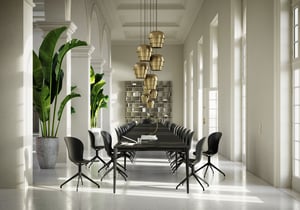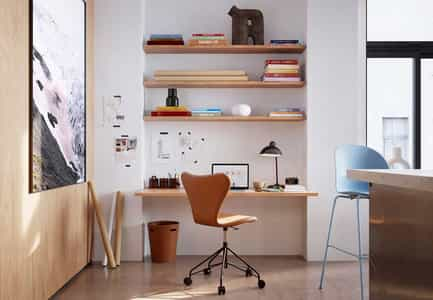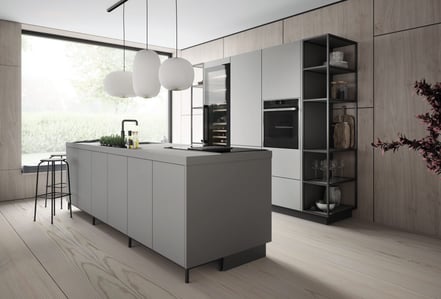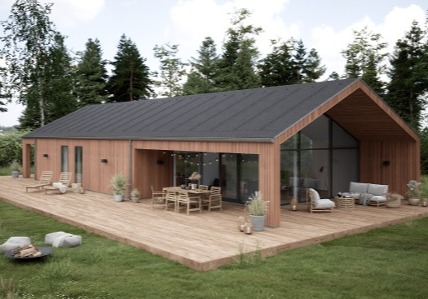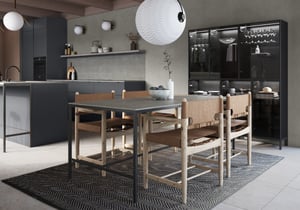How furniture companies can increase sales
A collection of trends, inspiration, and ideas to maximizing revenue.
Remaining relevant and competitive
Attempting to remain relevant and competitive in an oversaturated marketplace is often difficult enough. Meeting and adapting to new challenges only add to the complexity. But these challenges are not without solutions, and those furniture businesses that can meet and overcome these challenges in creative and innovative ways will find great success in the future.
Furniture Industry Trends for 2021
In the furniture industry, trends come and go in both style and substance as well as in the way furniture is marketed to consumers. With consumer wants and needs changing drastically over the last year, brands will need to adapt.
More customers are making the switch to shopping for furniture online. Taking advantage of new technologies are serving to increase online sales by helping customers find the perfect piece, without ever having to leave their home.
Customers who shop heavily online now expect free shipping as part of the norm. Easy financing options are also an important component of delivering good CX.
Customers don’t want to wait for weeks or more than several days for a piece of furniture anymore. Many brands now cater to millennials, one of the largest furniture-buying demographics, by offering pre-assembled pieces in a variety of colors or upholstery options for easy pickup or quick delivery.
Another important component of delivering outstanding CX is providing customers with personalized guidance and suggestions. Online, e-commerce managers and marketers can utilize technology, social media marketing, and a combination of the two to reach customers on social channels.
Sustainability is already a large consumer concern, with consumers willing to spend more for products they know were produced by brands that also share their concerns for the environment.
With more individuals working from home than ever before, there has been an increase in demand for home office furniture that is stylish, functional, easy to assemble, and quick to ship. This can be a challenging niche to break into but expect to see several new contenders giving it a try in 2021.
Smart furniture has been around for some time but the demand for products in this market has also been growing, especially now that more individuals are working from home.
Consumers expect sales personnel and floor staff to be completely knowledgeable about the products. Online, the same holds true. Remote staff and customer support personnel need to be able to provide customers with the information they seek.
Challenges furniture businesses are facing today
Technological advancements in e-commerce
Our ever-advancing technology has also fueled a change in consumer behavior. Adjusting to both is like facing two challenges at the same time. However, utilizing this technology is also the solution to both. You can satisfy consumer pain points and stand out from competitors by taking advantage of technical and 3D solutions that showcase your furniture products in amazing, photorealistic detail.
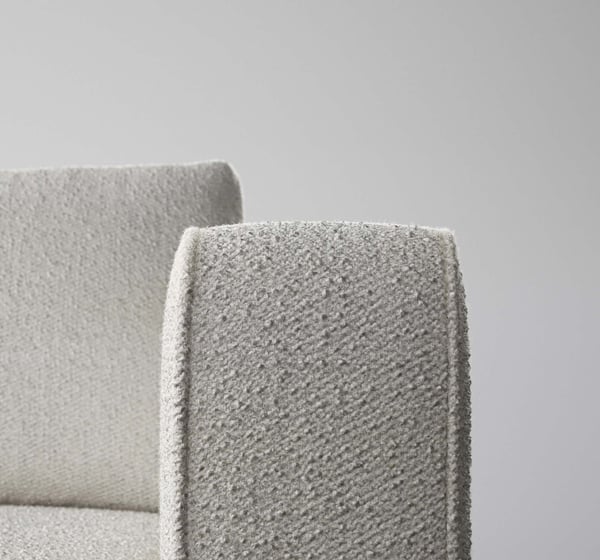
Standing out from competitors
New marketing strategies must be developed in order to remain competitive in both the online marketplace and in physical store locations. In either, one of the most important things your brand can do is provide outstanding CX. Know your audience and you’ll be better equipped with the knowledge and tools to meet and exceed their expectations.
Customers need to physically see the product
A serious challenge for brands that want to move more of their product via e-commerce webshops. Presenting your furniture products in a manner that is as close to the real thing as possible solves this retail business pain point. Use ImageScripting to showcase each piece in your collection in stunning detail, allowing the customer to rotate, zoom in and out, and even examine hidden components with ease.
Training remote staff
In the age of the Covid-19 pandemic, the remote workforce has increased exponentially. But there are numerous challenges in training a larger, remote workforce. Brands must learn how to communicate effectively with remote staff and monitor employee performance while also seeking to create a rich company culture.
Realizing the importance of brand perception
Ensuring favorable brand perception is a key element in the development of the customer journey map. Technology today allows for brands to stand out online (with quality images, video, and product configurators).
The evolving customer journey
Brands must ensure that all points along the customer journey are cohesive and continual, while also always addressing a pain point at each touchpoint. Doing so communicates you understand the customer’s needs and expectations, and that you are equipped to meet and fulfill them.
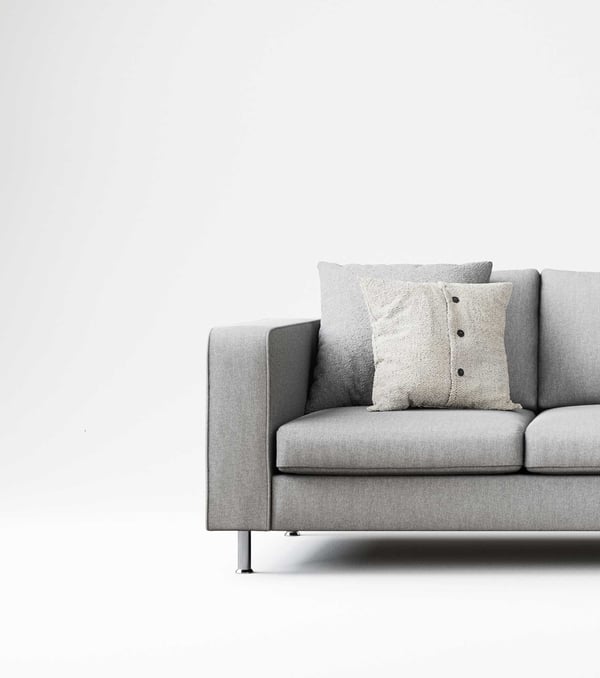
A larger focus on sustainability
Much more than a growing trend, consumers are more actively seeking sustainable products and the companies that produce them. It isn’t easy to go green overnight, but a brand that makes even one simple change in at least some of their products can make a big difference in the marketplace and with their bottom line.
Did you know:
- 88% of consumers want the brands to help them make a difference and sustainable choice
- 96% of people feel their own actions, such as buying ethically, can make a difference
- 46% of people have climate and environment in a first place on the list of most important political and social issues
Take the next step with video marketing
Once you're up and running with 3D visualizations of your furniture products, it's time to consider which synergies and opportunities there are to exploit the many benefits of 3D visualization.
Use your new foundation of product digitalization to create videos from the same 3D models used for your images.
Developing your marketing strategy
To fully adjust to new consumer expectations as well as successfully face new and future challenges, brands must develop a strong marketing strategy. Without a thorough and complete marketing strategy, it will be difficult to make important business decisions, connect to your audience and solve their pain points, or even improve brand recognition and Internet visibility.
Understanding your customer’s demands
Each component of your complete marketing strategy should find a way to solve a customer pain point and meet their demands. To achieve this, you must know what your customers want and need, what they care about, what you can do to make them happy, and how your products will solve their problems.
Building a buyer persona will help you discover the answers to those questions and more effectively build a marketing strategy that directly caters to your ideal customer.

The omnichannel experience
Another important component of the customer buyer journey is being sure that the customer can find you, wherever they might be looking. Explore every opportunity for marketing and communication so that you can make it as easy as possible for the customer to find you and contact you.

Make your website amazing
Many furniture businesses have already realized the importance of a stunning website, so you’ve got to make sure your own website is up to par. Showcase your furniture products using ImageScripting and 3D modeling to produce high-quality, photorealistic images with great detail, and in all styles and colors. Doing so will greatly serve to help buyers make their purchase decision, as well as help you stand out from competitors. Making your website easy to navigate and search for products, as well as mobile-friendly, is also critical.

Understanding the customer's buyer journey map
When the buyer begins to research a product or a brand, they embark on the customer journey. Throughout the journey, the customer will arrive at various touchpoints that are designed to provide a positive customer experience by offering information or a solution to a customer's pain point. This is what keeps the customer actively pursuing your product and moving along the map until at such point they make their purchase decision.
It is critical that you not only fully understand the purpose of the customer journey map when developing your marketing strategy, but also how each touchpoint will help the customer decide if they need your product. Remember, parts of your customer journey map don’t necessarily have to be online, either. Some touchpoints will also encompass in-store experiences and traditional marketing options as well.

Leveraging social media
Using social media channels as part of your marketing mix will enable you to better engage your audience in a way that helps you stand out from competitors, improves brand recognition, and fosters a relationship of trust.

Tips to boost foot traffic to your furniture store
Building a strong connection between your online presence and your retail store reinforces your brand and serves to foster a better relationship with your target market. Boost the traffic in your retail store, and you’ll also drive more online traffic to your site, and vice versa.
1. Amenities
Making customers feel welcome with a few modern conveniences and comforts can greatly improve their shopping experience. A hydration station with water and coffee, or a lounge area and even a children’s zone, and don’t forget free Wi-Fi!

2. Special events
Partner with interior influencers or furniture designers and offer educational workshops on interior design or related topics.
3. Realize the importance of customer experience
If your employees are friendly, professional, knowledgeable about the product, and happy to assist the customer, they will build a reputation for excellent customer service, resulting in an increase in traffic to your retail.
4. Entice them with amazing window displays
In a retail setting, your window displays will be the first thing potential customers see. Make your window displays fresh, exciting, and seasonal. Don’t be afraid to get creative.
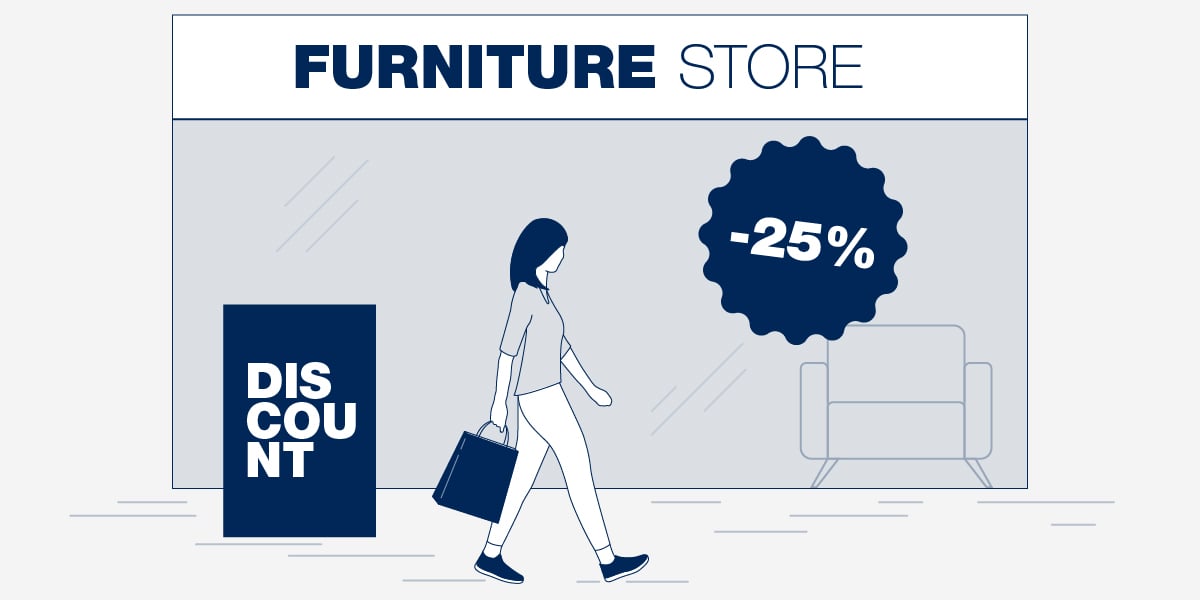
5. Discounts
Consumers love discounts. Offer in-store discounts, bring-a-friend-discounts, package discounts, birthday discounts, a discount on a next purchase, or a combination of a discount with a loyalty club.
6. Invest in signage
Make it easy for someone driving by to see your store and know that it is a furniture store. Simple as that, but easy to forget.
7. Use everything Google has to offer
Make sure that your store is listed on Google My Business. Use Google local inventory ads to showcase your available products to shoppers in the area. Use Google Analytics to help you measure your ROI on marketing, product sales, customer engagement, and much more.
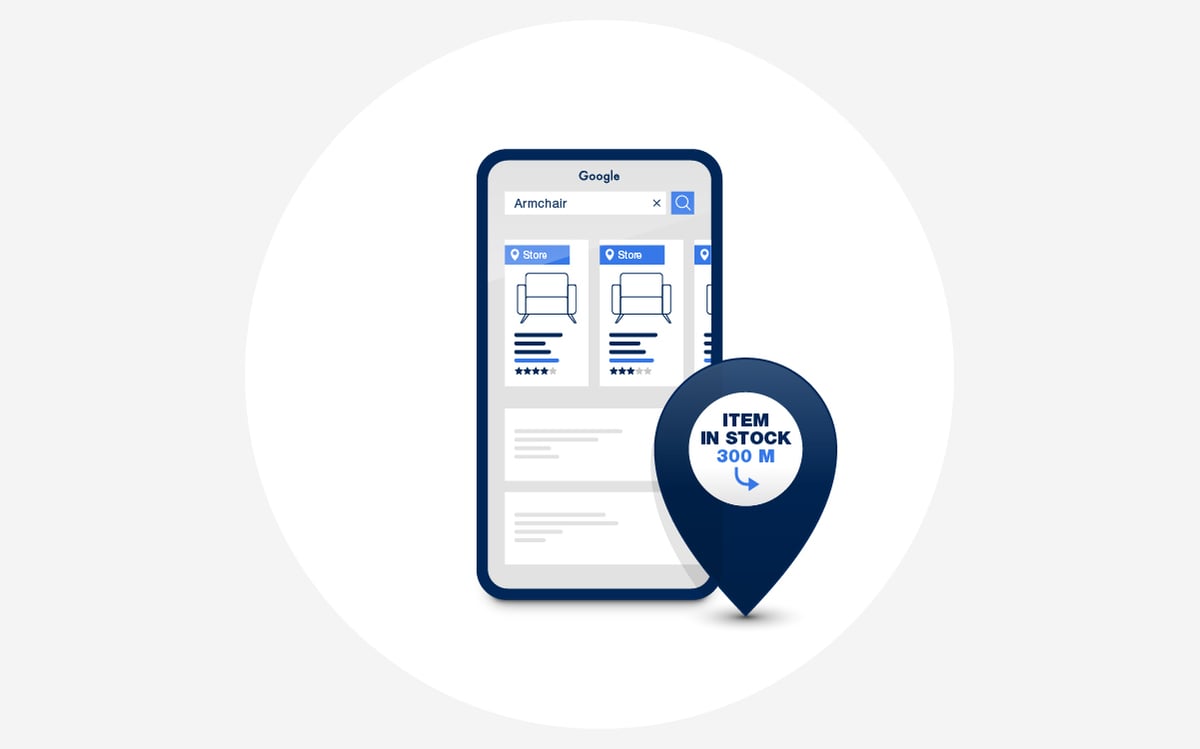
8. Engage your local
The audience on Social Media
Reach out to your local audience on social media platforms.
9. Touchscreens & digital showrooms
Add touchscreens or kiosks that act as a high-tech catalog; customers can select a product from the appropriate category, scroll through products, and then select one to view in more detail. You should also consider creating a digital showroom that allows for a unique combination of online and in-store experiences.
Learn more from our case story about Invita who successfully excites their customers with their digital showroom.
10. Augmented reality
Using AR, customers in your store can view different furniture products in different environments, enabling them to get a better feel for how it might look in their own homes.
Take a look at this small example where a virtual sofa is placed, via a mobile phone, in a real room.
Technology That Will Drive Revenue
3D Visualization & Product Digitalization
Product digitalization provides you with data files that can easily be shared across multiple platforms and media types, amongst sales, production, and business partners. And since consumers, today not only expect but outright demand digitalization, this first step in a digital transformation just makes sense.
Cost-effective visualization services are also an ideal means of showcasing forthcoming products to marketers, partners, and clients. When future products need to be marketed quickly, high-quality 3D visualizations (also known as CGI - Computer Generated Imagery) will serve to make your marketing materials more cost-effective, decrease time to market, and enable you to showcase a furniture product in all colors, styles, and shapes.
ImageScripting
ImageScripting technology can be used to produce photorealistic images of each piece of furniture, showcasing the products in stunning detail. Consumers viewing the products online can zoom in and out without any loss of quality or clarity, rotate images at any angle, and see each piece in a multitude of colors and styles. Portions of the image can even be dissolved in order to reveal hidden components and features.
Product Configurators
Product configuration tools enable you to present your full catalog of products, models, colors, and textures in a neat, fun, and engaging way. The tool enables customers to interact with your products, encouraging them to continue along on their customer journey, and ultimately leading them to choose their favorite product and complete their purchase.
WebAR
Augmented reality can be used as a truly unique sales tool, allowing customers to easily visualize how a product will look within their own homes.
BIM Objects & Revit Families
BIM or building information modeling is a sophisticated technology that has been specially designed to enable you to complete projects in less time, with minimal or no flaws, and in a more cost-effective manner.
By implementing BIM you can streamline your projects by essentially utilizing data files that have been developed with specific parameters that greatly enhance and improve your modeling projects. Many furniture manufacturers already utilize BIM to maximize their product reach and subsequently advance their position in the furniture market.
CAD packages
CAD is an old but still effective technology that offers increased value in the presentation of furniture products in a variety of settings. CAD models also serve a great purpose in marketing materials, especially when promoting new products or showcasing products in B2B.
Top business videos

We have had the pleasure of producing this commercial for BoConcept related to a sale.
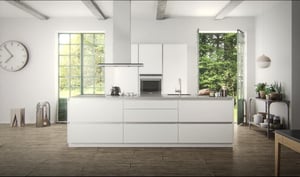
We created this commercial for Kvik that shows the beautiful details and features a Kvik kitchen consists of. Especially, the focus is that the kitchen can be styled exactly as the customer wishes.
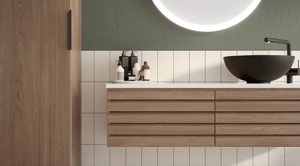
This video produced for Linn Bad presents a beautiful bathroom with a focus on design, quality, and functionality.
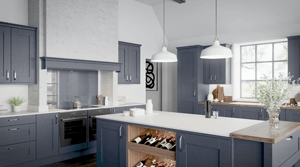
We have produced this video for Sigma for use on social media platforms. In the video, a kitchen is presented with a focus on the small details that all together are of great importance.

How do you sell the dream of a long life bed? For most people, they would want to lie in the bed before buying it, and especially if you know it is an extra good quality bed with fantastic comfort, which Wonderland's beds are.
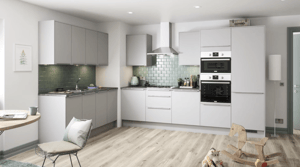
We have created this video for Magnet for use on social media platforms.
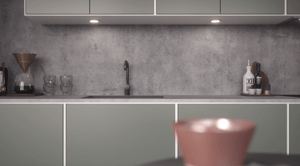
We have produced this film for Svane for use on their social media platforms. The film focuses on the small details that make a kitchen feel like home.
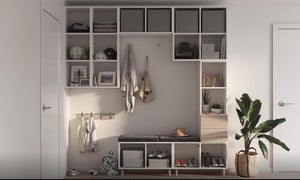
In this film, GoodHome presents their storage solutions and how you can adjust them to your home and personal wishes.
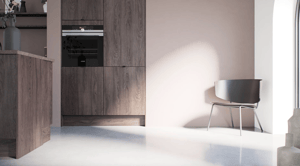
We created this video for Nobia for use on their social media platforms. The video presents just one of their many beautiful kitchen brands.
Let technology do the hard work
Spend your time on what you like the most; getting creative, minimizing lead time on marketing assets, or plain and simple free up more time in your schedule. Let the technology do the hard work.
Helpful video marketing resources
We've collected a list of some of the resources out there that we found very useful. If you feel something is missing don't hesitate to reach out to us either on the chat or by email.
List of resources
Mastering Value Propositions (Strategyzer)
How to create a detailed buyer persona for your business (HubSpot)
The changing meaning of sustainable (Furniture World)
What is an omnichannel customer experience? (Acquire)
Video Marketing: The ultimate guide to getting started (Cadesign form)
Examples from your industry
Go to our industry-specific pages where we've collected all the best images, films, and product configuration examples from four different industries: Furniture, Kitchen & Bath, Home Improvement, and Industry & Manufacturing.

Conclusion
Trends and technology in the furniture industry may come and go, consumer demands and expectations will change once again, and the industry will always likely remain highly competitive. But a strong marketing strategy and a willingness to meet those challenges head-on will always play a major role in the success of any brand.
Do you want to talk to one of our furniture specialists?
Fill out the form and one of our experts will reach out to you to schedule a call.

